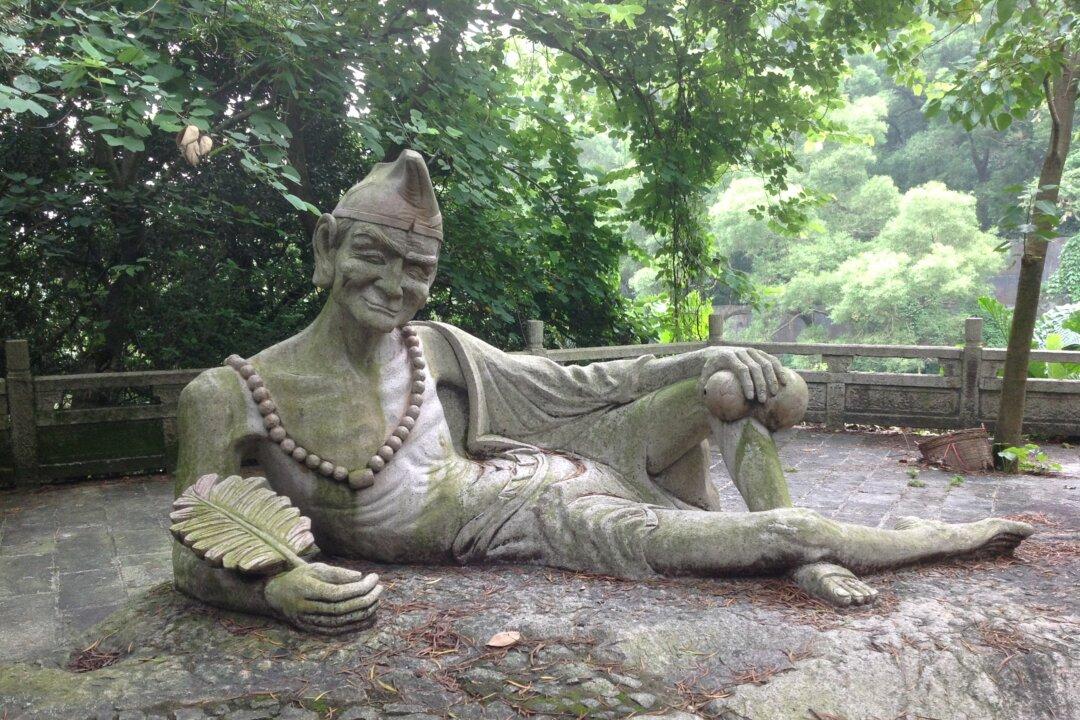Jigong was an eminent monk of the Southern Song Dynasty (1127–1279) who was also known as Daoji. There were many legends passed down about Jigong saving people with his supernormal abilities. Thus, in popular culture today, many stories about Jigong helping the poor and punishing evildoers have circulated.
One day, Jigong was collecting alms as usual when he saw a dogmeat seller relieving himself in an outhouse. Two baskets of meat and the shoulder pole for carrying them were lying on the side of the street. Jigong saw with his celestial eye that the outhouse was going to collapse soon and that the dogmeat seller would be buried and die there. Jigong thought, “No. He shouldn’t die, for he is a great example of filial piety for the world to learn from.” Then he went over, picked up the shoulder pole, and ran off with the baskets of dogmeat. At the top of his voice, Jigong called out, “Look! No one wants these two baskets of meat! I will take them to my temple!”






